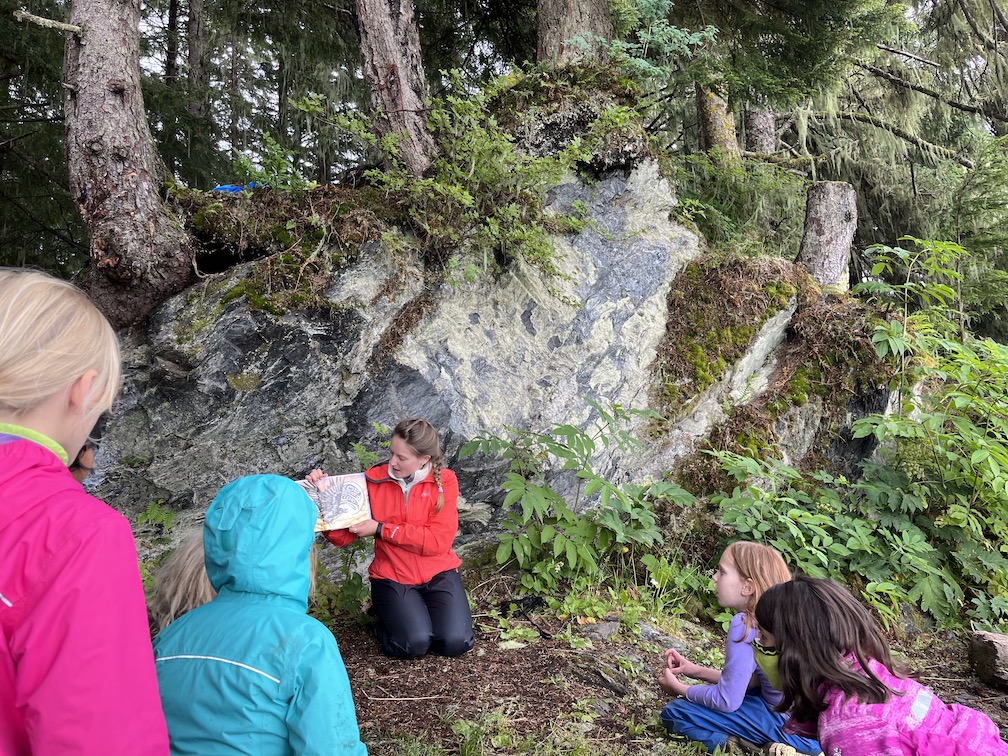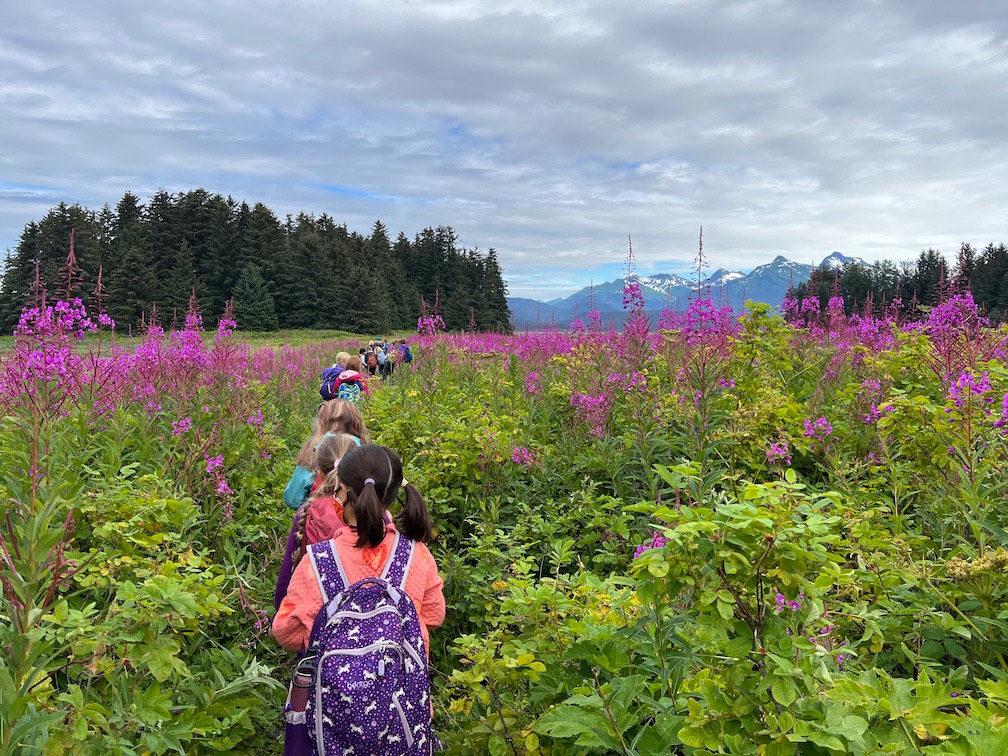Summer Archives
Julia Tilton- Discovery Southeast |
Environmental Science Education for the Next Generation: Working with Discovery Southeast’s Outdoor Explorers Program in Juneau, Alaska
 This summer, I worked in the backyard of the country’s largest National Forest to offer place-based education to Southeast Alaska youth. Under the direction of Juneau-based non-profit Discovery Southeast, I helped design and implement this summer’s iteration of the longstanding Outdoor Explorers program. This year, we expanded the eight-week curriculum to provide students entering grades 1-9 with opportunities to learn about regional ecology and naturalism specific to Southeast Alaska’s temperate rainforest climate. The program also created opportunities for participants to build confidence in wilderness settings while practicing leadership and teamwork skills.
This summer, I worked in the backyard of the country’s largest National Forest to offer place-based education to Southeast Alaska youth. Under the direction of Juneau-based non-profit Discovery Southeast, I helped design and implement this summer’s iteration of the longstanding Outdoor Explorers program. This year, we expanded the eight-week curriculum to provide students entering grades 1-9 with opportunities to learn about regional ecology and naturalism specific to Southeast Alaska’s temperate rainforest climate. The program also created opportunities for participants to build confidence in wilderness settings while practicing leadership and teamwork skills.
Throughout the summer, nearly 300 Juneau youth from diverse socioeconomic backgrounds participated in Outdoor Explorers. Discovery Southeast has served the greater Juneau community for over thirty years, earning it name recognition as the premier nonprofit organization for place-based education. Its founders intended to engage locals with the same outdoor education and recreation opportunities afforded to the million tourists who visit annually. Whether it’s taking kids paddling out on the ocean for the first time, or introducing them to the trail systems behind their schools, Outdoor Explorers fosters kids’ appreciation for nature by showing them firsthand what their home – nestled within the Tongass National Forest – has to offer. The logic guiding Discovery Southeast’s mission is that stewardship and environmentalism grow from a deep understanding of and appreciation for our natural surroundings. Without this foundation, it is difficult to raise the next generation to care for and protect the land. In this way, the impact of such place-based education is intertwined with mitigating climate change, for education is critical to preventing further environmental harm.
While Outdoor Explorers has operated in summers past, this year we debuted six weeks of middle school programming. Offerings included themed-weeks such as Peak Week, Adventure Week, and Girls’ Week, which concentrated on teamwork, confidence building, and empowerment. While we structured these weeks around specific goals, our Outdoor Explorers curriculum encouraged participants of all ages to engage with their environments and one another, through activities from tidepooling to nature storytelling.
In addition to teaching new skills, we leveraged members of the community to come and share their expertise. From a volunteer search-and-rescue dog operation to a salmon scientist, we established and expanded several contractor relationships that will continue partnering with Outdoor Explorers in future years.
To understand program efficacy, we surveyed families weekly. We then evaluated and incorporated feedback into subsequent weeks, and will use it to improve next summer. To support a sustainable curriculum, I organized a program binder with current and past program materials for staff to reference when planning future summers. I also produced a year-end slideshow for families to view that will be posted online to promote future registration.
In the wake of the Covid pandemic, Outdoor Explorers served a unique purpose this summer, providing children with a chance to recoverfrom the challenges of the past two years. The structured, safe space outside nurtured kids as they built resilience and improved their social-emotional wellbeing before beginning a new school year.
